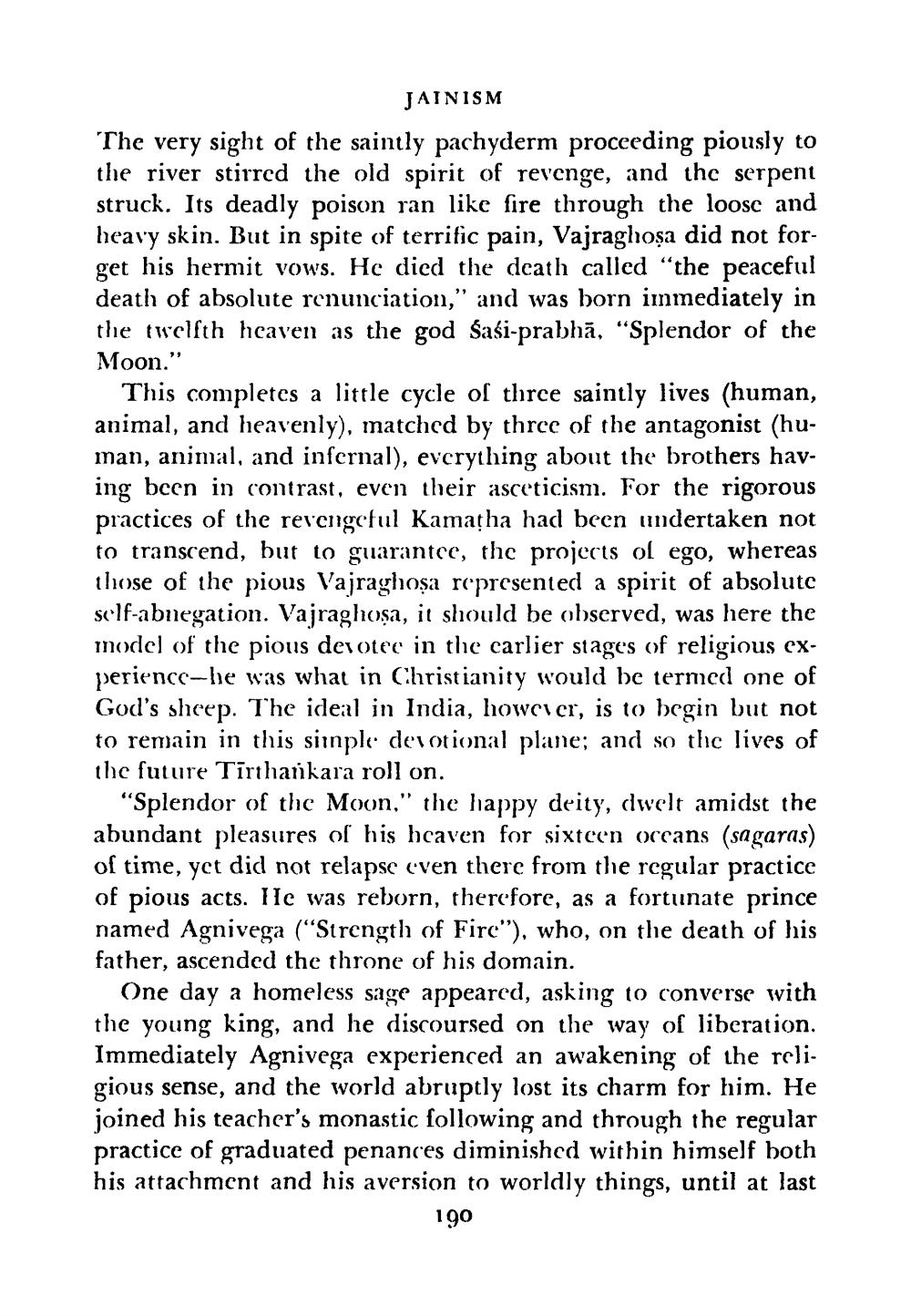________________
JAINISM The very sight of the saintly pachyderm proceeding piously to the river stirred the old spirit of revenge, and the serpent struck. Its deadly poison ran like fire through the loose and heavy skin. But in spite of terrific pain, Vajraghosa did not forget his hermit vows. He died the death called “the peaceful death of absolute renunciation," and was born immediately in the twelfth heaven as the god Śaśi-prabhā, "Splendor of the Moon."
This completes a little cycle of three saintly lives (human, animal, and heavenly), matched by three of the antagonist (human, animal, and infernal), everything about the brothers having been in contrast, even their asceticism. For the rigorous practices of the revengeful Kamatha had been undertaken not to transcend, but to guarantee, the projects of ego, whereas those of the pious Vajraghoșa represented a spirit of absolute self-abnegation. Vajraghoșa, it should be observed, was here the model of the pious devotee in the carlier stages of religious experience-he was what in Christianity would be termed one of God's sheep. The ideal in India, however, is to begin but not to remain in this siinple devotional plane; and so the lives of the future Tīrthankara roll on.
"Splendor of the Moon," the happy deity, dwelt amidst the abundant pleasures of his heaven for sixteen occans (sagaras) of time, yet did not relapse even there from the regular practice of pious acts. He was reborn, therefore, as a fortunate prince named Agnivega (“Strength of Fire"), who, on the death of his father, ascended the throne of his domain.
One day a homeless sage appeared, asking to converse with the young king, and he discoursed on the way of liberation. Immediately Agnivega experienced an awakening of the religious sense, and the world abruptly lost its charm for him. He joined his teacher's monastic following and through the regular practice of graduated penances diminished within himself both his attachment and his aversion to worldly things, until at last
190




